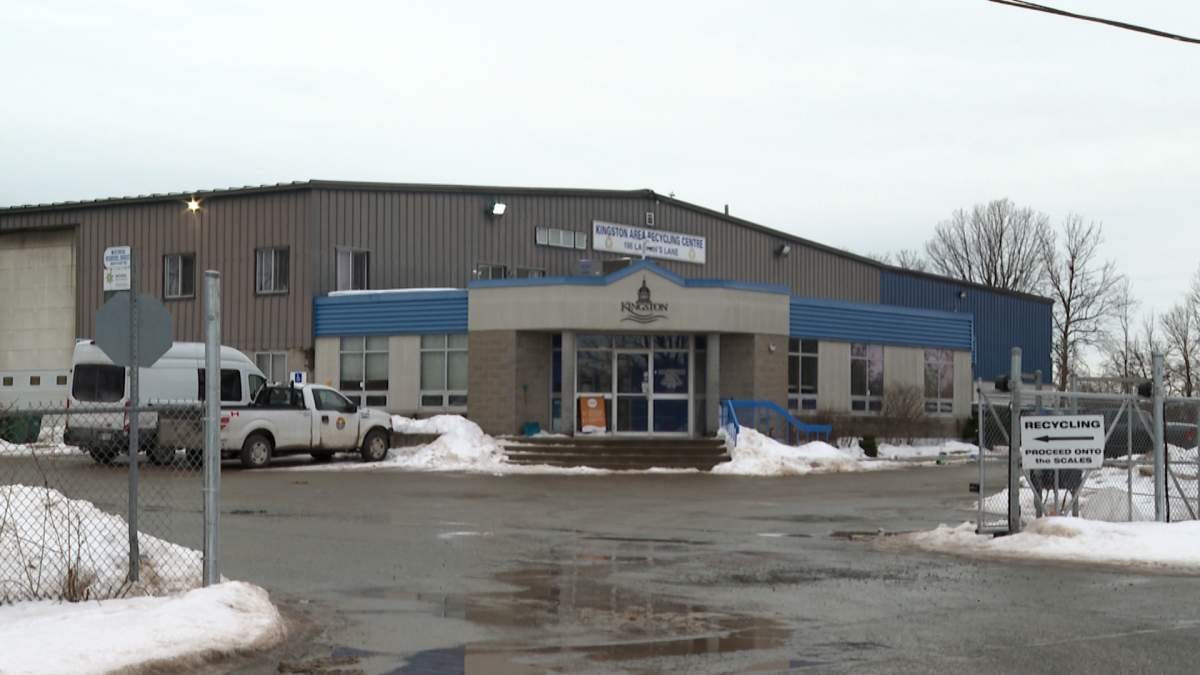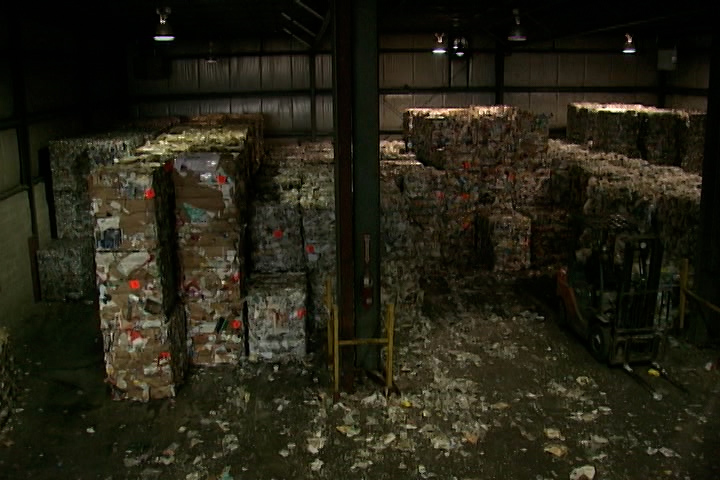Ontario’s blue box collection service will undergo some big changes starting later this year that will impact municipalities across the province.

The Ontario government is shifting the cost and responsibility for residential collection and sorting of household recyclables to the industry producers who generate the waste paper and packaging.
The transition period will be staggered over the next three years, from July 1, 2023, through 2025, to ensure a smooth transition for municipalities and producers.
Kingston’s transition is set to begin on July 1, 2025.
The City of Kingston has already started laying the groundwork for getting out of the curbside recycling business, though officials stress that residents won’t notice a change in service during the transition.
The city has developed significant blue material collection and sorting infrastructure over the decades and wants to avoid relegating much of it, pardon the pun, to the recycling heap.
Kingston has operated a large recycling collection and sorting facility and weigh scale on Lappan’s Lane, known as the Kingston Area Recycling Centre (KARC), since 1989. It’s the largest facility of its kind in South Eastern Ontario.
City council is now looking to find a tenant for the sprawling facility once the local recycling service is handled by industry producers.
Councillors pre-approved a potential lease of KARC and related equipment for up to 10 years to companies intending to submit proposals to provide recycling collection, transfer and processing services in the Kingston area. Companies will be chosen based on a provincially regulated bidding process.

Get breaking National news
“The ultimate benefit of this is we are maximizing the asset that we have. If we don’t take advantage of this we risk having a stranded asset that we will lose money on,” explains Brad Joyce, the city’s commissioner of transportation and public works in charge of the blue box service.
At this time, staff recommended against selling the property outright, adding it still has long-term value due to its proximity to other municipal services such as a regional fire training centre, industrial zoning designation and nearby yard waste operations.
Joyce says leasing the building will provide the city with additional revenues to offset any losses from the municipal sale of recyclable materials.
Kingston also stands to lose about $2 million a year in provincial recycling subsidies that it currently receives to provide the residential service.
The deadline for interested companies to submit proposals to provide local recycling services is March 31, according to a staff report.
It remains unclear how many jobs in the recycling centre and on the blue and grey box collection routes may be impacted.
The city has six full-time employees and eight waste collection vehicles on routes in central Kingston, while suburban routes in the east and west areas are contracted out. The contracted service is negotiated until 2028 but there is an early termination clause.
Kingston provides the blue box service to about 45,000 single-family households and 8,500 multi-family households and the recycling depot processes over 10,400 tonnes of recycling waste a year, according to a 2018 study for the city.
At their Feb. 7 meeting, councillors wanted to know if the city could submit its own bid to retain control of the service.
But staff say that option is highly unlikely.
“We do not believe there would be a real opportunity for the city to bid. The intention of the province is clear — to move to a circular economy. The city is not in the best position to be in that competitive market,” Joyce explains.
The focus of a circular economy is to make individual producers responsible and accountable for collecting and managing their packaging and products once consumers are done using them.
As far as what households can expect with the changing blue box service — whether it will be the same, better or worse than what residents have come to expect — provincial legislation is clear that new providers of the service will have to meet existing blue box service levels in the city at least until 2026, Joyce explains.
Beyond that, he says the intent is to collect a consistent set of blue and grey box materials province-wide. For example, whatever household items are collected in Kapuskasing will be the same as in Kingston.
There will be no disparity in the types of items that are picked up — such as cans, cardboard and plastics — in each municipality.
That may mean a larger variety of items collected in some municipalities and a reduction in others, according to Joyce.
“Ontario will transfer to a standard recycling program with an identical collection system. It could be different, could be better. The goal is for every municipality to have the same service level.”
In addition to recycling the responsibility for household hazardous waste such as paints and batteries will also shift to producer collection.
The city is expected to retain control over yard waste and green bin organics collection.











Comments
Want to discuss? Please read our Commenting Policy first.